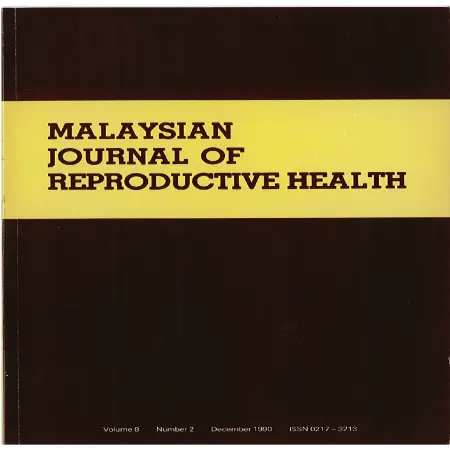| Item type |
Article |
| Subjects |
600 Technology > 610 Medicine & health |
| Division/Agency |
LPPKN - National Population and Family Development Board, Malaysia: Human Reproductive Division |
| Keywords |
Cholesterol biosynthesis, Fetoplacental steroidogenesis, Fetal growth and development |
| Additional Information |
The hard copy can be refer at Resource Center, NPFDB. |
| Abstract |
We have previously shown that the human umbilical cord in-vitro possess the ability to synthesize isocaproic acid and presumbly pregnenolone from cholesterol. Here, we examined the ability of the cord to synthesize cholesterol from acetate. Homogenates of umbilical cord (36-41 weeks gestation)obtained following spontaneous vaginal delivery from uncomplicated pregnancies (age 22-31 years) were incubated with [2-14C] acetate. Using the reverse-isotope dilution procedure, cholesterol was isolated and characterized as [14C] cholesterol acetate. Confirmation of identity of newly synthesized cholesterol was obtained after recrystallisation with added non-radioactive cholesterol acetate as standard. The rate of 14C incorporation is small but definite. The results indicate that the homogenates of human term umbilical cord contain the enzymes responsible for the conversion of [2-14C] acetate to [14C] cholesterol. It is suggested that cholesterol synthesized de novo can serve as a percursor for progesterone synthesis in-vivo. |





